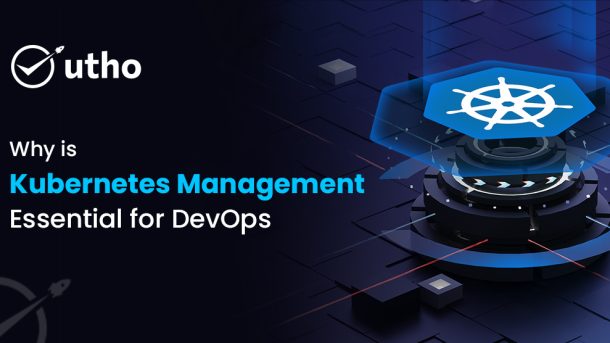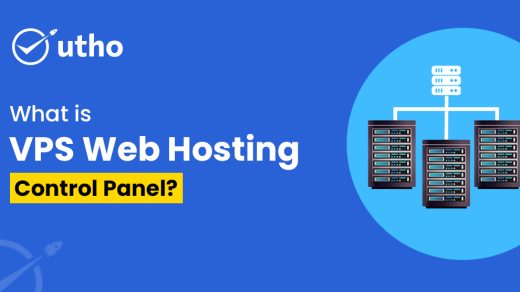Introduction to Kubernetes and DevOps
To speed up software development and deployment, groups now use DevOps. It is the best framework for this. It bridges the gap between development and operations. A key enabler of DevOps is Kubernetes. It is an open-source container orchestration platform. It automates the deployment, scaling, and management of containerized applications.
In a DevOps environment, agility, automation, and continuous delivery are critical. Kubernetes is key. It provides the infrastructure to support these goals. Kubernetes is powerful. But, effective management is crucial. It maximizes its benefits and ensures smooth, scalable app deployments.
This blog will explore why Kubernetes Management is vital for DevOps. We'll cover its challenges and how it improves DevOps principles.
What Is Kubernetes Management?
Before understanding the importance of Kubernetes Management for DevOps, we must define it. What does Kubernetes Management encompass? Kubernetes Management is a set of tools and practices. They ensure the efficient operation of Kubernetes clusters and their applications. Kubernetes is powerful, but it can become complex without proper management. It may be hard to scale and secure. That's where Kubernetes Management comes in. It automates and oversees containerized environments. This ensures they are optimized for performance, scalability, and security.
Kubernetes is widely used in modern cloud-native environments to manage containerized applications. However, its true value lies in how well it’s managed. Effective Kubernetes management keeps the platform running well from development to production. This is true no matter the deployment's size or complexity.
Kubernetes Management typically involves five key components:
1. Cluster Management: Cluster management is the backbone of Kubernetes Management. It involves the setup, maintenance, and monitoring of Kubernetes clusters. A Kubernetes cluster is a group of machines, called nodes. They work together to run containerized apps. Proper cluster management ensures high availability. It balances workloads across nodes and optimizes resource use. This includes handling node failures, and managing node capacity to meet demand. It also includes ensuring the cluster is healthy and operational. Efficient cluster management helps organizations to avoid downtimes. It optimizes resource use and keeps applications available.
2. Application Deployment: Kubernetes Management also includes managing app deployments on the Kubernetes infrastructure. This involves rolling out new app versions. It also means scaling them to meet demand and distributing them efficiently across the cluster. Kubernetes has features like rolling updates and canary deployments. But, managing them well requires a deep understanding of the platform. Proper Kubernetes Management makes it easy to deploy containerized apps. It ensures updates with minimal downtime and no disruption to users. Also, it allows for a quick rollback of changes if an update causes issues.
3. Automation: One of the core principles of Kubernetes is automation. Kubernetes Management uses automation to handle key tasks. These include scaling applications, balancing network traffic, and failing over during system failures. With automation, Kubernetes can scale application resources. It will do this during peak demand and reduce them when demand drops. This ensures cost efficiency and optimal performance. Also, load balancing is automated. It distributes traffic across multiple instances, preventing bottlenecks. Failover mechanisms recover from failures by restarting failed containers or reallocating resources. This automation cuts manual work. It makes it easier to manage complex environments with less risk.
4. Monitoring and Logging: Continuous monitoring and logging are essential to Kubernetes Management. Kubernetes runs containerized apps across various nodes. So, real-time insight into app performance and infrastructure health is critical. Kubernetes Management involves setting up monitoring systems. They track the performance of applications and resources in the cluster. Prometheus, Grafana, and ELK Stack are popular for monitoring and logging in Kubernetes. These tools provide data on resource use, response times, network traffic, and issues. They help teams find performance bottlenecks and troubleshoot problems quickly. Kubernetes Management makes sure the monitoring systems are set up and maintained. It provides insights for ongoing optimization.
5. Security: Protecting Kubernetes clusters and their apps is vital to Kubernetes management. Kubernetes environments are complex and dynamic. This makes them targets for security vulnerabilities. Kubernetes Management includes strong security measures. These are RBAC, network policies, and secrets management. Proper management includes regular security audits and vulnerability scans. It must enforce security best practices. They protect the infrastructure from threats like unauthorized access, data breaches, and attacks. Kubernetes security requires two things. First, configure the cluster securely. Second, update security protocols as the cluster evolves.
Kubernetes Management is vital. It ensures that Kubernetes's core aspects are managed well. This maintains the reliability, efficiency, and security of cloud-native, containerized apps. Now, let's explore why Kubernetes Management is vital for DevOps. It helps DevOps teams work more efficiently to meet their goals.
Why Is Kubernetes Management Essential for DevOps?
1. Simplifying Complex Infrastructure Management
A key goal of DevOps is to streamline the development and deployment pipeline. But, complex infrastructure can slow this process down. Kubernetes Management automates many tasks to simplify infrastructure management. These tasks would otherwise require manual intervention.
Kubernetes helps teams manage containerized apps. It ensures workloads are evenly distributed across available resources. But, without proper Kubernetes management, DevOps teams can struggle. They may have issues with configuring clusters, managing resources, and maintaining uptime. Kubernetes management tools automate these tasks. This lets teams focus on development, not infrastructure.
2. Enabling Continuous Delivery and Deployment
A core tenet of DevOps is CI/CD. It means development teams must often integrate code changes and deploy updates to production. Kubernetes, with its built-in automation capabilities, is ideally suited for CI/CD pipelines.
With proper Kubernetes management, teams can automate deployments. This ensures new application versions are rolled out consistently and reliably. Kubernetes handles tasks that are vital for DevOps agility. They are zero-downtime deployments, rolling updates, and automatic rollbacks.
3. Scaling Applications Dynamically
Scalability is vital in modern app development. Kubernetes excels at scaling containerized apps based on demand. In a DevOps environment, workloads can vary with user demand. Kubernetes can dynamically scale applications to ensure optimal performance.
However, effective Kubernetes Management is essential to ensuring that scaling happens smoothly. Kubernetes can allocate resources by automating the scaling process. It uses factors like CPU usage, memory use, and network traffic. Poorly managed manual scaling can cause resource shortages, slow performance, or waste.
4. Improving Resource Efficiency
In a cloud environment, optimizing resource use is key for performance and cost. Kubernetes helps DevOps teams run apps efficiently. It packs containers onto nodes based on their resource needs. This optimizes the use of available CPU, memory, and storage.
Kubernetes Management boosts resource efficiency. It automates resource allocation, monitors usage, and enforces policies to prevent conflicts and over-allocation. For DevOps teams, it means fewer bottlenecks and lower costs. It also means more reliable performance.
5. Enhancing Collaboration and DevOps Culture
DevOps aims to create a culture of collaboration between development and operations teams. Kubernetes simplifies infrastructure management. It allows both teams to work together more closely.
With the right Kubernetes management tools, developers can focus on coding. They can create new features. Meanwhile, operations teams can maintain and optimize the infrastructure. This better collaboration cuts miscommunication. It speeds up development and leads to faster product releases.
6. Automating Failure Recovery and High Availability
In a DevOps-driven world, minimizing downtime is a top priority. Kubernetes provides fault tolerance and high availability. It does this by restarting failed containers and redistributing workloads. It also scales resources to meet demand.
However, these features require proper Kubernetes Management to function effectively. Kubernetes management tools monitor clusters and apps in real-time. They automate failover processes to keep services available during failures. This automation is critical for the uptime and reliability of DevOps pipelines.
7. Strengthening Security and Compliance
As apps get more complex, so do the security challenges in managing them. Kubernetes has security features to protect apps and data. They include RBAC, network policies, and secret management.
However, without proper Kubernetes management, enforcing these security measures can be overwhelming. A good Kubernetes management strategy applies security best practices to all clusters. It helps enforce compliance with industry regulations, like GDPR and HIPAA. This is critical for businesses in highly regulated industries.
8. Ensuring Visibility and Monitoring
DevOps needs visibility into applications and infrastructure. It's critical. Kubernetes offers a lot of monitoring and logging data. But, teams can struggle to make sense of it without good management.
Kubernetes Management platforms work with monitoring tools like Prometheus, Grafana, and ELK Stack. They provide real-time insights into cluster health, app performance, and resource use. This visibility helps DevOps teams. They can find issues early, optimize performance, and meet SLAs.
Tools and Best Practices for Kubernetes Management in DevOps
To manage Kubernetes in a DevOps environment, some tools and best practices can help. They can streamline the process.
1. Kubernetes Dashboards and Interfaces
Tools like Kubernetes Dashboard and Lens provide a GUI. Use it to manage clusters, monitor workloads, and troubleshoot issues. These dashboards show the cluster's health and the apps on it, in real-time.
2. CI/CD Integration
Integrating Kubernetes with CI/CD tools like Jenkins and GitLab CI automates deployments. This ensures seamless code delivery and updates.
3. Infrastructure as Code (IaC)
Tools like Terraform and Helm let DevOps teams manage Kubernetes using code. This approach simplifies version control. It improves collaboration. And, it ensures consistent cluster configurations.
4. Monitoring and Alerting
Tools like Prometheus and Grafana keep the team updated on the cluster's health, performance, and resource usage. These tools include Kubernetes-native logging solutions.
5. Kubernetes Security Tools
Tools like Aqua Security, Sysdig Secure, and StackRox help secure Kubernetes clusters. They automate vulnerability scanning, policy enforcement, and monitoring.
In DevOps, managing infrastructure is key to delivering software quickly and reliably. Kubernetes Management is vital to these goals. It automates tasks, ensures scalability, boosts resource efficiency, and enables continuous deployment.
The best tools for Kubernetes let DevOps teams innovate and manage less complex infrastructure.
Kubernetes is at the core of their operations. It helps businesses to:
- Release software faster.
- Improve collaboration.
- Build resilient, scalable apps.
Utho, an open-source inspired platform, provides seamless Kubernetes management. It helps DevOps teams innovate. It also optimizes performance and scalability in their cloud environments.




